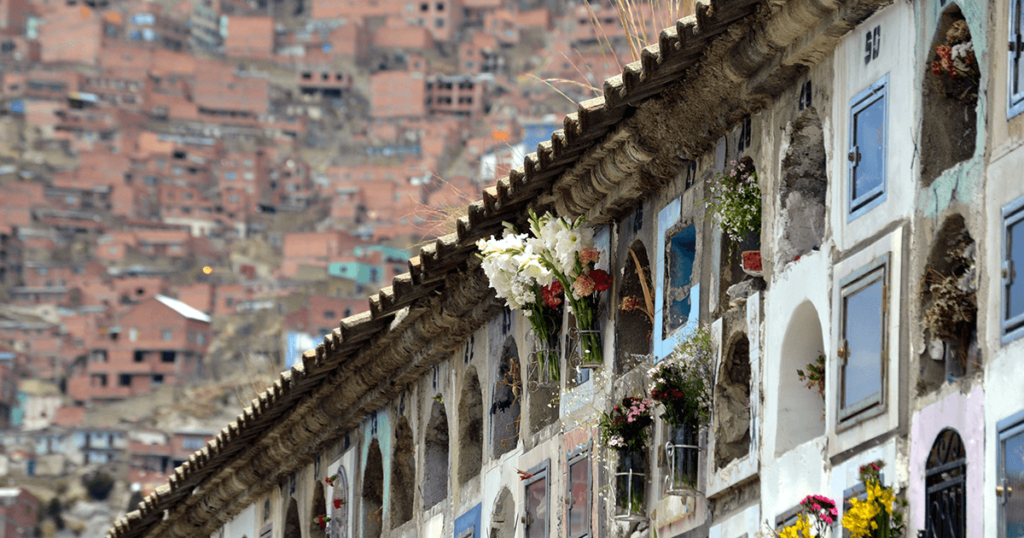
In Spanish, santo and santa, words that are both adjectives and nouns, are terms of praise for an especially good person. You’re a saint if you take care of an aging parent or impaired aunt or stay with a spouse who is difficult. You’re a saint, in short, for enduring less than the idyllic, and not complaining about it. You’d think that’s not so hard to do, since we all have the opportunity in our less-than-ideal lives; at some time each of us acts selflessly, and this is what the word recognizes.
While most days of the year commemorate one saint or another, and sometimes several, November 1, Día de Todos los Santos, commemorates all of them, known and unknown. In Spain, it’s the day for remembering the dead.
The old custom on Todos los Santos is to attend Mass and then go to the cemetery to lay flowers at the graves of family members. In preparation for the visit, a bit of clean-up work is often done beforehand—pulling grass from around paving stones, scraping moss out of corners, replacing a fallen marker, picking up stray bits of trash. Here in Spain I’ve seen very few graves of the kind I know from the States, a grassy mound marked by a stone. Instead people are buried in coffin-sized spaces in a cemetery wall, one above another, three or four high, called nichos.
My father-in-law is in one. On the first day of the first November after his death, I went looking for him in the cemetery on the hill above Gijón, between a park and some fields edging the city. It was a nice day, the cemetery was peaceful but by no means empty, and I liked being among others, remembering someone I’d loved. But I didn’t like the nicho, preferring a grave where there’s contact with the ground, with dirt and roots and rain. So I didn’t go back.
Recently, however, I’ve imagined the nicho not as a sealed cavity but as a spot in a sort of bookcase for souls, occupied by the disintegrating record of a particular adventure, such as an old and moldering book might be. I’ve got books with a layer of dust on the top showing that they haven’t been removed from their shelf in years, but at the thought of tossing out my books, I shiver. They are my memories. I want them in their places, not to touch, not to hold, not to read, but to have close. One day I’ll tend to them. This year, though, I’ll go again to the cemetery, not just for Luis, but for all the sometime saints I’ve known.

